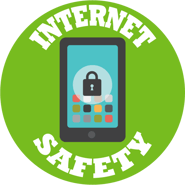
It is no secret that your business could be under attack by cybercriminals at any moment of any day. It is the basic fact of business in the internet age. Providing small business security against these probing cyber criminals requires a culture of security within a business. Check out the five best practices for keeping your business safe below.
- Every business should start by having an “Internet Use Policy” as part of their employee handbook. The policy should serve as a guideline as to what is acceptable use of company-owned technology.
- Businesses should consider limiting and regularly auditing the number of employees that have the ability to install software and access confidential company information. Elevated privileges are often required to install spyware or ransomware on users’ computers. Once the software has been installed, it has the same access as the user to data on the network, which may contain confidential or sensitive information.
- Be proactive when it comes to protecting company assets. Ensure all of your company computers have up-to-date anti-virus/antimalware software installed. Companies may also consider implementing a Web Filter to better protect employees from accessing potentially unsafe websites.
- Email may also be a threat to your network. Many viruses and spyware applications are installed via email attachments or links from emails that look legitimate. Implementing a Spam Filter will not only catch potential threats, but it may also prevent employee productivity from being lost to deleting all that junk mail. Companies that deal with sensitive information regularly should also consider adding a secure email solution. It’s the only safe way to send sensitive information via email.
- Nothing is more important than employee education when it comes to protecting company assets. Ensure your employees know the basics when it comes to safe internet usage. Below is a list of five safe Internet surfing tips everyone should be aware of.
- Use a unique password for each website
- Ensure your password is complex and change it regularly
- Never enter personal information into an unsecured website (look for the https: or lock to be sure the website is secure)
- Never click on links or attachments in an email from an unknown sender
- Advertisements even on major websites can redirect you to a potentially harmful website
Educating your team on proper security practices will always be key to keeping your business safe.
